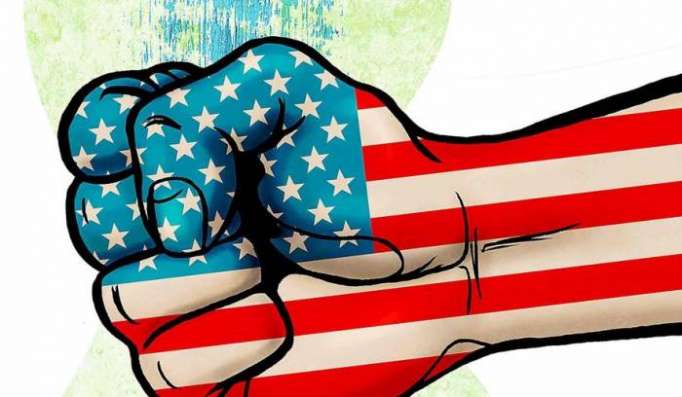The markets rallied as this new plan that targets the tariffs to the countries like China and Russia that are cheating and stealing. It was a reminder that with Mr. Trump it always comes down to the art of the deal.
Mr. Trump’s original call for punitive blanket tariffs got the world’s attention and was a reminder to world leaders that Mr. Trump doesn’t bluff.
That’s a useful lesson going forward for our friends and foes alike.
I was opposed to the steel tariffs. But Mr. Trump makes a strong case that many of our trading partners — most notably, China — are violating trade agreement rules left and right and stealing American patents and intellectual property protections. And they have been doing so for years and years with impunity.
China is estimated to be pirating more than one-half trillion of American technology, inventions, drugs, vaccines and computer software each year. That is theft and it cannot stand.
Since intellectual property is an ever-larger share of what America produces each year, the costs get exponentially higher. Why do we let this happen?
Mr. Trump is right that we’ve tolerated these abuses under a religious belief that to challenge them would violate principles of free trade. There has also been a sense that there isn’t much America can do about it to retrieve this half-trillion annual loss of GDP.
We are being played as suckers and Mr. Trump is right that the rest of the world laughs behind our back.
Mr. Trump has introduced a new strategic doctrine on trade and though I have some reservations, it’s important that we understand it and realistically assess its merits.
The Trump doctrine as I see it, and this is based on my conversations with him on this subject, is predicated on the undeniable truism that nations like China and Russia need America far more than we need them. We both benefit from the transaction, but they benefit more than we do.
Mr. Trump wants to exploit that American advantage. The idea here is very simple: If you have a really nice restaurant that every one lines up to get into on a Saturday night, a good businessman raises the prices on the menu.
This strategic free trade stance is designed to monetize the advantage that America has as a result of having the largest and most lucrative market. Since we are the global alpha male, we can make the rules — rather than hand them off to the feckless bureaucrats at the WTO.
Mr. Trump wants to use trade policy to advance America’s national and economic security priorities. He wants to make access to U.S. markets contingent on foreigners playing by the rules (for example, paying full price for the research costs of our technologies).
He also wants to demand that our trading partners purchase more American-made products — whether it is our corn, cotton, cars or computers. If they don’t cooperate, they will pay a toll or tariff.
The Chinese aren’t going to like having to conform to these new rules, but what alternative will they have? The steel and aluminum tariffs will hit their bottom line for sure, but any tit for tat retaliation will hurt them far more than us.
If we lose access to their cheap goods and services, we pay more for clothes and toys and toothpaste at Walmart. If they lose access to our markets they crash into recession. Who loses more here?
This doctrine can also be used effectively to advance our national security goals as well. We could and in my opinion force China to cooperate in the nuclear disarmament of Beijing’s, lap dog, North Korea, or they lose access to American markets.
Does the Trump doctrine risk a trade war? Hopefully not. But it will allow the United States to seize a larger share of the gains from trade. These gains have been enormous for everyone. The expansion of international trade from 1980-2005 launched the greatest period of poverty reduction in world history with one billion people moved out of abject poverty.
Trade across borders is undeniably good as Adam Smith taught us some 250 years ago. But free trade rules that gives America a bigger share of the global winnings and keeps us rich and safe is even better. Certainly our farmers, our technology and pharmaceutical companies, and our industrial blue collar workers would agree with that.
Mr. Trump is on to something here, and I don’t know if I’d endorse his trade doctrine, but it’s worth considering and not dismissing out of hand.
Stephen Moore is an economic consultant with Freedom Works and a columnist for The Washington Times.
The original article was published in The Washington Post.
More about: Trump
















































